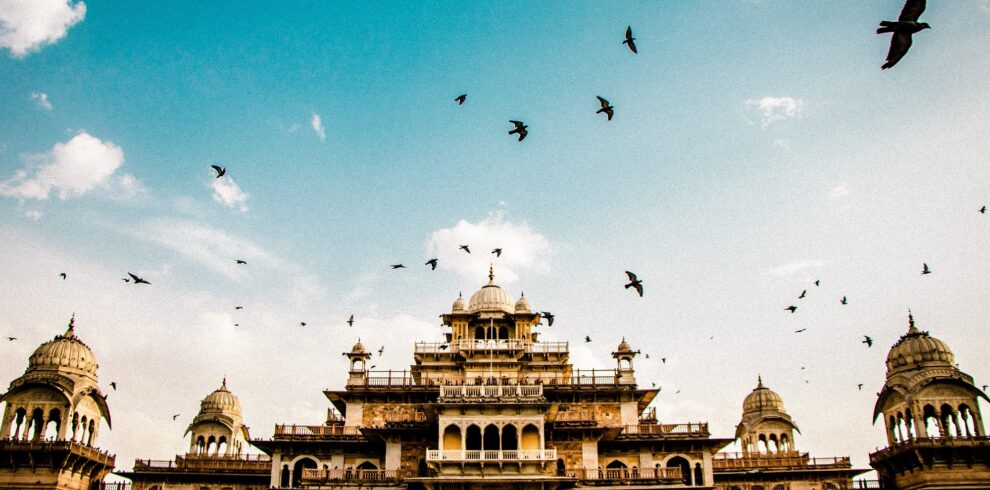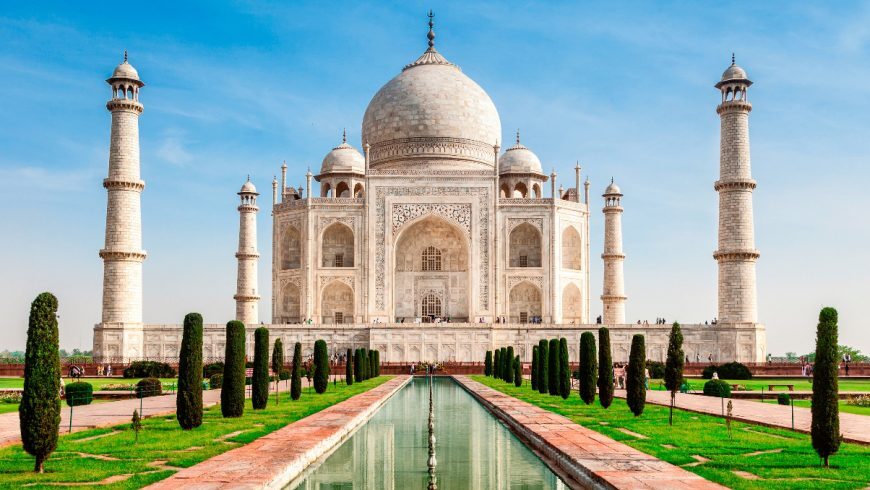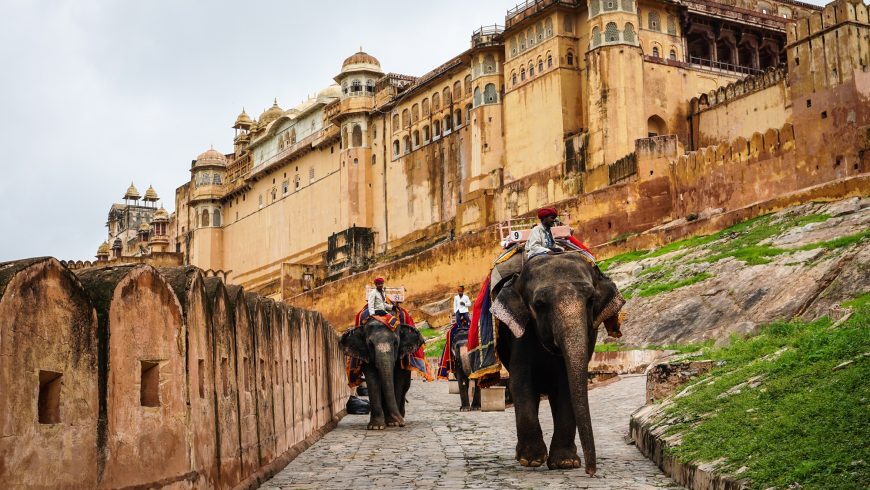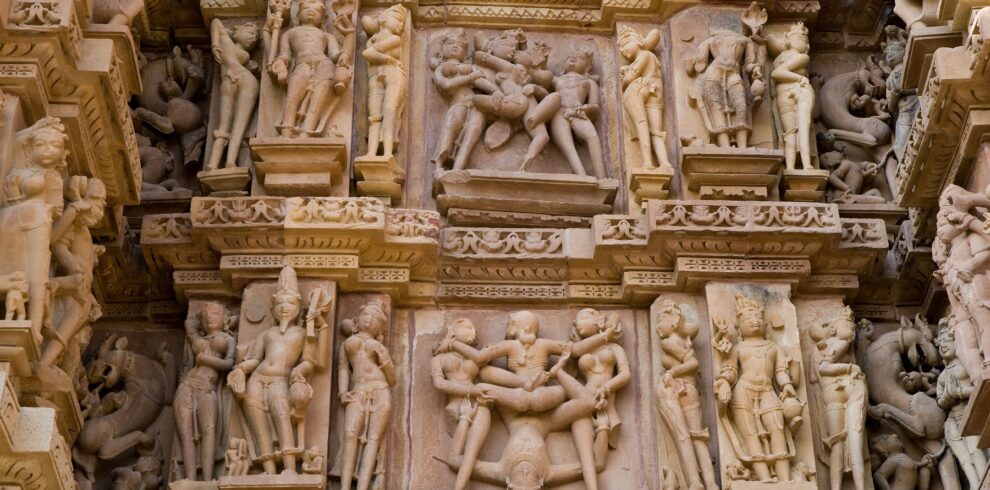Varanasi
Varanasi, also known as Kashi or Banaras, is one of the oldest continuously inhabited cities in the world and is considered the spiritual capital of India. Situated on the banks of the sacred Ganges River in the northern state of Uttar Pradesh, Varanasi is a place where ancient traditions and rituals thrive amidst the bustling chaos of modern life.
The city is renowned for its ghats, which are steps leading down to the riverbank, where pilgrims and devotees gather to perform rituals, offer prayers, and take holy dips in the sacred waters of the Ganges. The Dashashwamedh Ghat is one of the most prominent and vibrant ghats in Varanasi, where visitors can witness the mesmerizing Ganga Aarti ceremony, a spiritual ritual that takes place every evening, involving fire, incense, and devotional songs.
Varanasi is also home to numerous ancient temples and shrines dedicated to various Hindu deities. The Kashi Vishwanath Temple, dedicated to Lord Shiva, is one of the most revered temples in Varanasi and attracts thousands of devotees from around the world. Other notable temples include the Sankat Mochan Hanuman Temple, the Durga Temple, and the Tulsi Manas Temple, each with its own unique architectural style and religious significance.
The city is a melting pot of spirituality, philosophy, and culture, attracting seekers, scholars, and tourists alike. Visitors can explore the narrow lanes and alleys of the old city, which are lined with vibrant markets, bustling bazaars, and centuries-old buildings adorned with intricate carvings and colorful murals.
Varanasi is also known for its rich cultural heritage, with a thriving arts and music scene. The city is famous for its classical music and dance performances, as well as its vibrant festivals and celebrations, including the grand celebration of Dev Deepawali, which takes place on the banks of the Ganges.
Overall, Varanasi is a city of contrasts, where ancient traditions and modern life intersect, creating a unique and unforgettable experience for travelers seeking spiritual enlightenment, cultural immersion, and a deeper understanding of India’s rich heritage.
City Tour

- Jan
- Feb
- Mar
- Apr
- May
- Jun
- Jul
- Aug
- Sep
- Oct
- Nov
- Dec

- Jan
- Feb
- Mar
- Apr
- May
- Jun
- Jul
- Aug
- Sep
- Oct
- Nov
- Dec

- Jan
- Feb
- Mar
- Apr
- May
- Jun
- Jul
- Aug
- Sep
- Oct
- Nov
- Dec

- Jan
- Feb
- Mar
- Apr
- May
- Jun
- Jul
- Aug
- Sep
- Oct
- Nov
- Dec

- Jan
- Feb
- Mar
- Apr
- May
- Jun
- Jul
- Aug
- Sep
- Oct
- Nov
- Dec
Cultural Tours
Tourism is travel for pleasure or business; also the theory and practice of touring, the business of attracting, accommodating, and entertaining tourists, and the business of operating tours. Tourism may be international, or within the traveller’s country. The World Tourism Organization defines tourism more generally, in terms which go “beyond the common perception of tourism as being limited to holiday activity only”, as people “traveling to and staying in places outside their usual environment for not more than one consecutive year for leisure, business and other purposes”.
Tourism can be domestic or international, and international tourism has both incoming and outgoing implications on a country’s balance of payments. Today, tourism is a major source of income for many countries, and affects the economy of both the source and host countries, in some cases being of vital importance.

- Jan
- Feb
- Mar
- Apr
- May
- Jun
- Jul
- Aug
- Sep
- Oct
- Nov
- Dec

- Jan
- Feb
- Mar
- Apr
- May
- Jun
- Jul
- Aug
- Sep
- Oct
- Nov
- Dec

- Jan
- Feb
- Mar
- Apr
- May
- Jun
- Jul
- Aug
- Sep
- Oct
- Nov
- Dec

- Jan
- Feb
- Mar
- Apr
- May
- Jun
- Jul
- Aug
- Sep
- Oct
- Nov
- Dec

- Jan
- Feb
- Mar
- Apr
- May
- Jun
- Jul
- Aug
- Sep
- Oct
- Nov
- Dec
Day Tour
Desert Safari Tour

- Jan
- Feb
- Mar
- Apr
- May
- Jun
- Jul
- Aug
- Sep
- Oct
- Nov
- Dec
Jungle Safari
A is an overland journey, usually a trip by tourists to Africa. In the past, the trip was often a big-game hunt, but today, safari often refers to trips to observe and photograph wildlife—or hiking and sightseeing, as well.
The Swahili word safari means journey, originally from the Arabic meaning a journey; the verb for “to travel” in Swahili is kusafiri. These words are used for any type of journey, e.g. by bus from Nairobi to Mombasa or by ferry from Dar es Salaam to Unguja. Safari entered the English language at the end of the 1850s thanks to Richard Francis Burton, the famous explorer.
The Regimental March of the King’s African Rifles was ‘Funga Safari’, literally ‘tie up the March’, or, in other words, pack up equipment ready to march.
In 1836 William Cornwallis Harris led an expedition purely to observe and record wildlife and landscapes by the expedition’s members. Harris established the safari style of journey, starting with a not too strenuous rising at first light, an energetic day walking, an afternoon rest then concluding with a formal dinner and telling stories in the evening over drinks and tobacco.

- Jan
- Feb
- Mar
- Apr
- May
- Jun
- Jul
- Aug
- Sep
- Oct
- Nov
- Dec
Multi Day Tour

- Jan
- Feb
- Mar
- Apr
- May
- Jun
- Jul
- Aug
- Sep
- Oct
- Nov
- Dec

- Jan
- Feb
- Mar
- Apr
- May
- Jun
- Jul
- Aug
- Sep
- Oct
- Nov
- Dec

- Jan
- Feb
- Mar
- Apr
- May
- Jun
- Jul
- Aug
- Sep
- Oct
- Nov
- Dec

- Jan
- Feb
- Mar
- Apr
- May
- Jun
- Jul
- Aug
- Sep
- Oct
- Nov
- Dec




